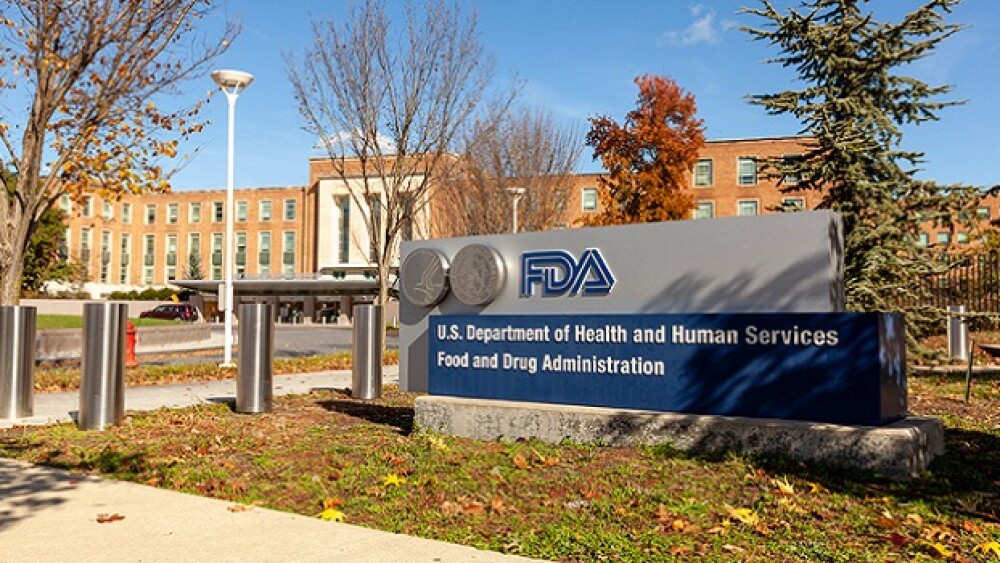SCYNEXIS, Inc. (NASDAQ: SCYX), a biotechnology company delivering innovative therapies for difficult-to-treat and often life-threatening infections, today announced positive results from the first interim efficacy analysis of the ongoing FURI study.
| JERSEY CITY, N.J., /PRNewswire/ -- SCYNEXIS, Inc., (NASDAQ: SCYX), a biotechnology company delivering innovative therapies for difficult-to-treat and often life-threatening infections, today announced positive results from the first interim efficacy analysis of the ongoing FURI study. FURI is a Phase 3 open-label study evaluating oral ibrexafungerp as a salvage treatment in patients with difficult-to-treat mucocutaneous and invasive fungal infections that are refractory to or intolerant of currently available standards of care. An independent expert panel (Data Review Committee) assessed the efficacy of ibrexafungerp in the first 20 treated patients. Oral ibrexafungerp showed clinical benefits in 17 out of 20 patients, with 11 patients achieving a complete or partial response and six patients a stable disease response. Only two patients did not respond to ibrexafungerp treatment and the outcome for one patient was considered indeterminate. Along with demonstrating the ability to treat fungal infections in vulnerable patients who failed other therapies, these preliminary results support continued patient enrollment in the FURI study to build toward a future New Drug Application (NDA) submission and potential approval through the Limited Population Pathway for Antibacterial and Antifungal Drugs (LPAD). “The positive results of this first interim analysis met all of our goals,” said Dr. Marco Taglietti, Chief Executive Officer of SCYNEXIS. “First, we fulfilled our ethical responsibility to justify the testing of oral ibrexafungerp in this patient population. Second, we showed that ibrexafungerp, administered orally, is effective in treating mucocutaneous and invasive fungal infections that do not respond to other therapies, including those administered intravenously. Third, we generated further evidence validating our vision of ibrexafungerp as a transformative antifungal agent able to address significant unmet needs in both outpatient and hospital settings in a variety of indications.” The 20 patients evaluated in this interim analysis suffered from a variety of severe conditions, including esophageal candidiasis, intra-abdominal abscesses, and oropharyngeal candidiasis, with the most common fungal species being Candida glabrata and Candida krusei, two highly resistant organisms. Ibrexafungerp treatment ranged from seven to 90 days, with a mean duration of 36.4 days. Oral ibrexafungerp was well-tolerated, with the most common treatment-related adverse events being gastrointestinal. There were no deaths due to progressive fungal disease and no safety signals warranting changes in the study. “These preliminary results of oral ibrexafungerp in this salvage therapy setting are very promising,” said Professor Oliver Cornely, M.D., Director of Clinical Trials Centre University of Cologne, Germany. “At my center, we have enrolled five patients in the FURI study, and I am thrilled that the positive responses observed in our patients are consistent with those observed by other investigators. Having an alternative new treatment to add to our current, limited armamentarium of antifungals, especially an oral option, is critical for those patients with resistant, difficult-to-treat or refractory fungal infections. Additionally, an oral option provides the flexibility and convenience of outpatient maintenance treatment. I am glad to see the progress in the development of oral ibrexafungerp and am looking forward to continuing my contribution to the program.” “The positive results of this interim analysis reassure us of oral ibrexafungerp’s clinical benefits in this difficult-to-treat patient population, warranting continued enrollment in the FURI study,” said Dr. David Angulo, Chief Medical Officer of SCYNEXIS. “As a physician, it was very gratifying to see patients with no adequate options respond to ibrexafungerp. Many of the patients enrolled in the FURI study are complex clinical cases with multiple underlying medical conditions, such as the following two cases:
“On behalf of SCYNEXIS,” continued Dr. Angulo, “I would like to thank the patients and investigators for their participation in the FURI study and the independent Data Review Committee for assessing this first group of 20 patients.” SCYNEXIS plans to provide additional details and patient cases of this interim analysis at an upcoming scientific meeting. About Ibrexafungerp About the FURI Study Patients are also considered for enrollment if they have an eligible fungal disease and, in the judgement of the investigator, cannot receive approved oral antifungal options (e.g., susceptibility of the organism or risk for drug-drug interactions) and continued IV antifungal therapy is not desirable or feasible due to clinical or logistical circumstances. Enrolled patients receive an initial loading dose of 750mg BID (twice a day) of oral ibrexafungerp during the first two days of treatment and subsequent oral doses of 750mg QD (once a day) for up to 90 days. Patients are evaluated several times during treatment, with treatment efficacy assessed at the end of ibrexafungerp therapy. Subjects are then followed for another six weeks. More information about the FURI study can be found at https://clinicaltrials.gov/ct2/show/NCT03059992. About SCYNEXIS Forward Looking Statement CONTACT: Media Relations
SOURCE SCYNEXIS, Inc. | ||
Company Codes: NASDAQ-NMS:SCYX |




